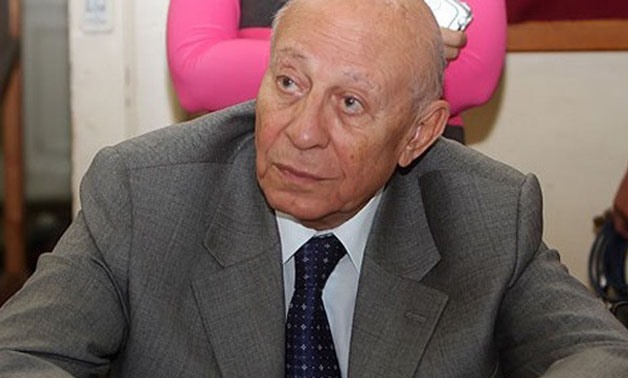
Mohamed Fayeq, head of the National Council for Human Rights_ File Photo
CAIRO – 21 March 2018: International criticism towards Egypt's human rights situation has intensified recently; a notable development given the build-up to the Egyptian presidential election. Despite having been debunked by many experts and observers, this critical rhetoric is an attempt to destabilize Egypt and defame its image.
New York-based Human Rights Watch issued a report on September 5, 2017, accusing security forces in Egypt of committing widespread torture.
Although the report attempts to give the impression that it tackles the subject of alleged torture in Egypt objectively, the title "Torture and National Security in al-Sisi's Egypt" immediately points to politically motivated undertones, and is designed to defame President Sisi's rule.
Foreign Ministry spokesman Ahmed Abu Zeid has commented on the Human Rights Watch report, saying that the report ignores Egypt’s recent procedures to protect human rights, including a high-level commitment to punish anyone proven guilty of committing such violations.
Furthermore, Human Rights Watch issued another report on February 26 in which it is claimed that Egypt employs “intensifying repression and the use of terrorism-related charges against peaceful activists… to silence critical voices ahead of the planned presidential elections on March 26-28.”
In an interview with Egypt Today, National Council for Human Rights (NCHR) President Mohammed Fayek debunked the international criticism towards Egypt and shed more light on the human rights situation in Egypt.
How would you respond to the criticism of some international organizations about the human rights situation in Egypt?
Egypt faces some problems regarding human rights, but we are seeing progress being made all the time. All problems cannot be solved overnight. Egypt’s constitution addresses freedoms, and we are seeing some laws that work to implement them. Some have been already adopted, and others should be amended in accordance with the constitution.
Do you believe that there is a plot against Egypt, especially from international human rights organizations?
It is true that there are some groups working to undermine Egypt. For example, the Muslim Brotherhood works with various human rights organizations, when in reality they are anti-state organizations. These subsequently coordinate with organizations in Switzerland, Turkey and the United Kingdom, and present them with incorrect information about Egypt that unfortunately forms the basis of the information they release.
Hence, I call upon all international organizations to scrutinize their information sources in order to maintain credibility. I am amazed that the progress achieved in combating torture cases once found in Egyptian prisons, and which has now completely disappeared, has not been mentioned, and in some cases has been denied by certain countries.
Why are there not any invitations sent to the officials of international organizations to visit Egypt?
Human rights organizations are flawed in that they are selective and employ double standards, and some of them use information provided by the Muslim Brotherhood who seeks to smear Egypt’s image. This raises some concerns with regards to how the information from these organizations is dealt with, especially when some are supported and funded by the Muslim Brotherhood.
To what extent are you satisfied with Egypt’s human rights situation in prisons and police stations?
I am not totally satisfied with the situation, but despite problems still being found in some prisons, including pretrial detention, we are making great progress in combating any violations. Therefore, while huge developments have been made in prison, the West continues to focus only on the negative points.
What do you think of the amendments made to Egypt’s Criminal Procedure Code?
The Criminal Procedure Code is very important, and I have made some comments on it that I have presented to the government.
What are the amendments that should be introduced to the NGO law?
We have called for executive regulation to amend some points in the law, and President Abdel Fatah al-Sisi has promised to tackle these issues until the law is amended.
Some think that the Health Insurance Law does not achieve social justice, since it is applied to some governorates but not others.
We also have some comments on this issue, but I think that great steps have been made and will eventually succeed.
Will the National Council for Human Rights monitor the presidential election?
We will follow the election and will have an operation room to receive any complaints across Egypt, which will be sent directly to the National Election Authority (NEA). We will issue a daily report on the election process.
Some have criticized the election process, which is being conducted under emergency law; what is your opinion on this?
It would be preferable if the election process was to be conducted without being under emergency law, but we should keep in consideration the terrorism and violence incited by the Muslim Brotherhood. The security of citizens should be the highest priority.
Is there coordination between the National Council and Egypt’s entities?
There is coordination amongst Egypt’s entities, from the government to parliament, and the presidency supports the National Council for Human Rights.
What do you think of Egyptian’s voting in the West?
The high turnout of Egyptians during the presidential election abroad was a clear message that Egyptians support their president and the state’s stability.

Comments
Leave a Comment